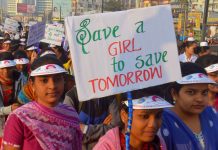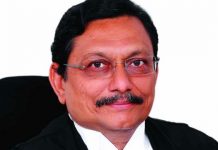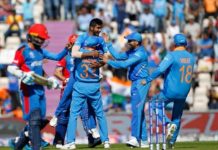Similar to the Cold War-I, the new Cold war-II appears to be dividing the world again, but the situation is much more complex. The Cold War-I was led by the USSR, but China having much bigger economy should be the natural leader of the new anti-western bloc
It goes to the credit of the India’s policy makers that irrespective of having different ideologies, representing either the rightist or left perspective, they are in unison that the country must have an active role in the current geo-politics, when the world is coming out of the era of the uni-polar world under the spell of the USA as the only super power to the play of the multiple powers, especially China and Russia. Within India, the country’s role as a non-aligned nation too has always been under scrutiny. During the post Emergency years i.e. 1977 onwards, the then foreign minister, Atal Bihari Vajpayee, had spelt out the doctrine of equidistance between the USA and the USSR. The situation, however, underwent a paradigm change following the collapse of the USSR in 1990s, when on December 25, 1991, the Soviet hammer and sickle flag lowered for the last time over the Kremlin, replacing it by the Russian tricolour.
The Charter of Paris
The final end of the communist regime was followed up by the resignation of the USSR’s then President Mikhail Gorbachev. He was replaced by Boris Yeltsin as the president of the new independent Russian state. Earlier, the Summit of the Heads of State or Government held in Paris on 19–21 November, 1990, had adopted the Charter of Paris for a New Europe. It welcomed the end of an ‘era of confrontation and division’ and proclaimed the desire to ‘build, consolidate and strengthen democracy as the only system of government’.
On its part, the Russian Federation, the successive state of the USSR, dismantled the Warsaw Pact, which had been established as a counter weight to the North Atlantic Treaty Organisation (NATO), established by the hawks in White House in 1949. The Warsaw Pact was formed six years later comprising the USSR, its affiliated Communist nations in Eastern Europe in 1955.
The European powers enjoyed unprecedented peace during this period, especially when the two former Cold War enemies, America and Russia embarked upon a process of disarmament. The negotiations had led to the signing of agreements for the progressive reduction of the number of conventional and nuclear weapons on European soil. The relations between them had begun to normalise, but the United States refused NATO membership to the Russian Federation. A number of former members of the Warsaw Pact, however, were enrolled in NATO.
The Visegrád Group comprising four Central European countries, the Czech Republic, Hungary, Poland, and Slovakia had decided to 21 December 1991 that their aim was seeking membership of NATO. They were concerned about the stability of their frontiers because of the revival of nationalism in Central Europe. They were also apprehensive of a possible resurgence of Russian assertion. Initially, the new Russian leadership expected that with the end of their country would be allowed to be a part of Europe, but it was denied by successive American administrations. Meanwhile, the induction of a number of the former Communist bloc members in the NATO had alarmed the Russian leadership. They felt that the US-led western powers are keen to weaken Russia’s traditional pre-eminent position in the region.
The Genesis of the Cold War-II
It is stated that the Cold War-II has not suddenly appeared on the world stage.
Nearly a quarter century ago, on May 1998, Gorge Kennan, a former diplomat and historian, had predicted that the decision of the US Senate to expand NATO to include Poland, Hungary and the Czech Republic would be “the beginning of a new cold war”, and further stated that “the Russians will gradually react quite adversely and it will affect their policies”. The veteran diplomat is also remembered as one of the leading figures of the group of foreign policy elders known as “The Wise Men”. He died seven years after making this prophecy on March 17, 2005, at the ripe age of 101.
It may be recalled that he had led the campaign for containing the USSR, which finally led to setting up power blocs during the Cold War-I years. In his series of articles, including “The Sources of Soviet Conduct”, had justified President Truman’santi-Soviet policy. In later years, he, however, began to criticize the ‘anti-USSR’ policies, he, earlier, had been championing.
The prediction regarding the Cold war-II was also made in Edward Lucas’s book, ‘The New Cold War: How the Kremlin Menaces both Russia and the West’ in 2008.
Enacting the Great Game
With the collapse of the USSR, there was no longer a global military threat in Europe. The local or regional conflicts could have erupted, but they could be peacefully addressed by focusing on economic, social and political issues. There is a common perception that the US-led western powers deliberately provoked Russia to invade Ukraine, and thus to bleed its economy by engaging it in a prolonged war. It is being asked, whether the USA being a successor imperial British power has served the cause of peace by invoking the past animosity between the rulers of Britain and the Russian emperor, Czar.
The Great Game was a political and diplomatic confrontation that existed during most of the 19th century and the beginning of the 20th century between the British Empire and Russian Empire. It had impacted the politics of Afghanistan, the vast lands of Central Asia and having direct consequences in Iran, India and Tibet. The British feared of a Russian invasion of India following its growing assertion in the Central Asia, the Russians were apprehensive of the expansion of British interests in Central Asia.
It is widely believed that the western powers engaged Russia in various diplomatic initiatives, but did not allow full participation in the European politics. The much trumpeted initiative of the United States and Germany, of a North Atlantic Cooperation Council could not make any real headway for ensuring a participative role for Russia in Europe matching its size and position in the region. These efforts had led to the Founding Act on Mutual Relations, Cooperation and Security between NATO and the Russian Federation. It was signed, thus creating the NATO-Russia Permanent Joint Council, but it could not prevent the eight-year old Russian-Ukrainian conflict in the region. The ongoing war in Ukraine has now entered into its eighth month, but no serious peace efforts are being made to end this conflict.
India’s New Assertion
During the post-1947 years, India had adopted a non-aligned approach in dealing with the erstwhile colonial powers. These powers had jointly defeated Hitler’s Germany with the help of the USSR. However, the collapse of the pro-West government in Beijing led to the formation of the anti-Communist or anti-Soviet bloc in the world. It adversely affected peace during the post- World War-II years. The Vietnam War, the conflicts in Africa and Latin America symbolized the new power rivalry on the earth. These conflcits had led to the Cold War-I. It, however, ended following the end of the Communist rule of the USSR in 1991.
Earlier, during the period following the collapse of the USSR, India had embarked upon a close economic cooperation with the western world. She, however, did not try to join any western defence alliance, but continue to obtain the sensitive state-of-the art weapons from Russia. It is stated that the present standoff between the USA and Russia could have been avoided if the US President, Joe Biden, had reassured the Russian President, Vladimir Putin, during their summit meeting held on 16 June 2021, in Geneva, Switzerland, that it had no intention to dilute the Russian influence in the region. Six months later, Putin rushes to New Delhi in December 2021 asking India to team up as a key partner with China in the proposed strategic alliance, Russia, India and China (RIC) for peace in the region. The proposal, however, could not make any headway due to the reluctance of China to withdraw its troops on India-Tibet borders, especially in the Galwan valley.
Similar to the Cold War-I, the new Cold war-II appears to be dividing the world again, but the situation is much more complex. The Cold War-I was led by the USSR, but China having much bigger economy should be the natural leader of the new anti-western bloc. There cannot be a straight dividing line in the contemporary world, when the American companies use the cheap highly skilled Chinese labour for manufacturing their products for marketing them worldwide. Amidst this troubled complex situation, India is quietly pursuing her non-aligned role benefitting her economy as well as in the geo-strategic politics, especially when uncertainty has engulfed the world.













